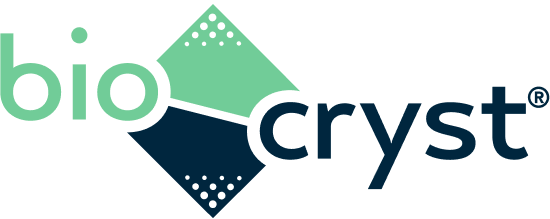About NS
Netherton syndrome is a serious, rare, lifelong genetic disorder affecting the skin, hair, and immune system, caused by lack of normal function of a natural inhibitor of KLK5. People with Netherton syndrome often have red, scaly, inflamed skin, fragile hair, and are more likely to develop skin infections, allergies, asthma, and eczema. Netherton syndrome can be life-threatening, especially during infancy when patients are vulnerable to dehydration and recurrent infections.1 Currently, there are no approved treatments for Netherton syndrome.2
We are developing BCX17725, a potential best-in-class protein therapeutic that is designed to treat the underlying protein deficiency that causes Netherton syndrome by inhibiting KLK5, a serine protease in the skin that is unregulated in people with Netherton syndrome. Data from nonclinical studies have shown the potential for BCX17725 to achieve the potency, specificity, and convenient dosing needed to treat patients with Netherton syndrome. Initial results from a Phase 1 clinical trial evaluating BCX17725 are expected in 2025.

Educational resources and support
Publications on Netherton Syndrome
Publications
-
Prevalence of and risk factors for nutritional deficiency and food allergy in a cohort of 21 patients with Netherton syndrome
-
Human papillomavirus infection in Netherton’s syndrome
-
The Spectrum of Pathogenic Mutations in SPINK5 in 19 Families with Netherton Syndrome: Implications for Mutation Detection and First Case of Prenatal Diagnosis
-
Kallikreins: Essential epidermal messengers for regulation of the skin microenvironment during homeostasis, repair and disease
-
Netherton Syndrome in Children: Management and Future Perspectives
-
Advances in understanding of Netherton syndrome and therapeutic implications
-
Netherton syndrome; neuropsychological and psychosocial functioning of child and adult patients and their parents
-
Netherton’s Syndrome: A Case of Two Male Siblings Diagnosed in Adulthood
-
An 8-Year-Old Child with Delayed Diagnosis of Netherton Syndrome
-
Netherton syndrome and papillomatous lesions—Should we perform human papilloma virus vaccination?
-
Characteristics of children with Netherton syndrome: a review of 21 patients
-
The challenging management of a series of 43 infants with Netherton syndrome: unexpected complications and novel mutations
-
Netherton Syndrome: A Genotype-Phenotype Review
Current clinical trials and research
Browse current clinical research on NS. Find detailed information on clinical studies, their goals, and how they are transforming care for patients.
A growing pipeline of small-molecule and protein therapeutics
BioCryst development programs represent the potential to improve the well-being of people whose lives are currently limited by HAE and other rare diseases. We discover novel, small-molecule and protein therapeutics that treat diseases in which significant unmet medical needs exist.
References
1. Orphanet. Netherton syndrome. Accessed August 14, 2024. https://www.orpha.net/en/disease/detail/634 2. Petrova E, Hovnanian A. Advances in understanding of Netherton syndrome and therapeutic implications. Expert Opin Orphan Drugs. 2020;8:455-487.

